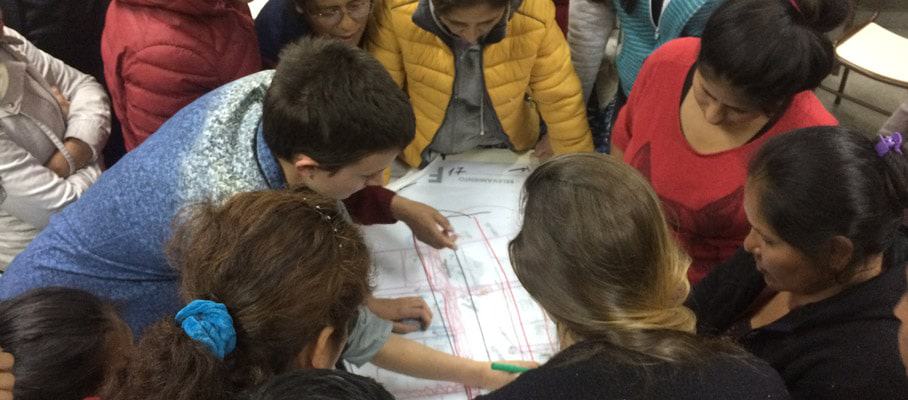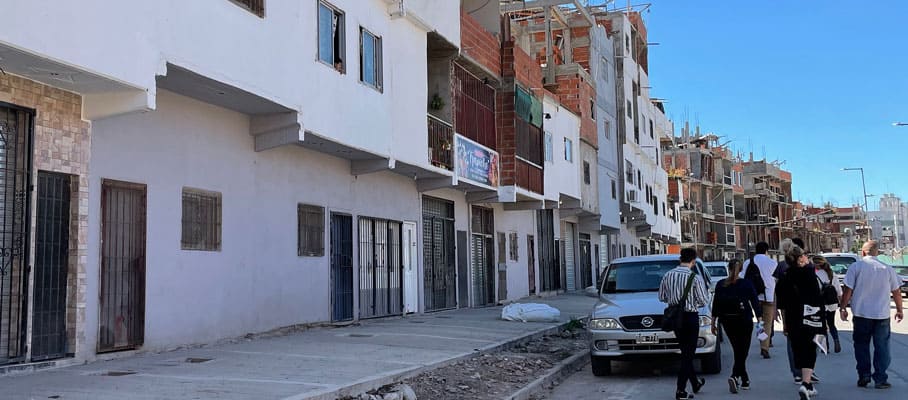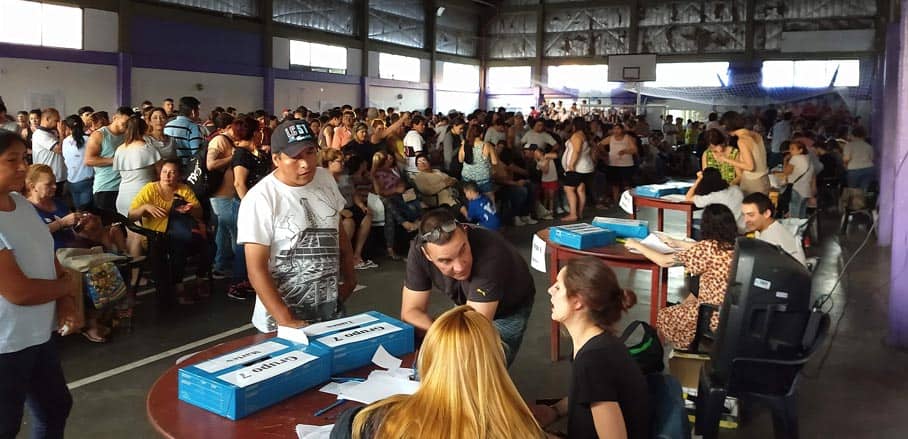Urban Labs in Latin America: Participatory and Effective Interventions
A strategy for planning that ensures to include citizens and addresses several challenges at once, urban labs can be found in many cities in Latin America. Simone Sandholz, Lucas de Carvalho Turmena, Jorgelina Hardoy, and Florencia Almansi with some examples from urban labs in Latin America.
Building New Coalitions to Tackle the Climate Crisis – Demand, Urgency, and COVID-19
Cities are among the core global emitters of greenhouse gases, but at the same time many, if not all, are witnessing the impacts of climate change. For example, in January 2022 a severe heatwave has struck Buenos Aires and left thousands of people without electricity, including due to the high demand of energy for cooling. It was the most vulnerable parts of the population, for example those living in badly built houses or with fragile access to basic services, who suffered the most.
To achieve global emission reduction targets, we need rapid urban action far beyond the level of ambition that we currently witness. However, such action needs to reach, include, and benefit all groups within society. It has to be socially just. In addition, it requires more than awareness of urban actors and inhabitants, it demands their participation. Project objectives must be collectively formulated in such a way that they are directly related to local needs, and do not merely address supposedly distant risks without any direct relevance to people’s own lives. Doing so is particularly challenging in settings with huge day-to-day challenges that understandably are people’s priorities.
Urban Labs in Latin America are More Common Than You Think
Over the past few years, urban labs have emerged as a strategy for planning and implementing innovative, broad-based, participatory urban sustainability projects. Increasingly they are being implemented across Latin America. An investigation carried out by the Transformative Urban Coalitions (TUC) project, under the International Climate Initiative of the German Federal Ministry for Environment, Nature Conservation and Nuclear Safety, found 66 labs across 13 countries, under different names such as urban labs, living labs, city labs, and transition labs.
Core topics addressed vary from efficiency in public service delivery and digitalisation of public administration to improvement of active mobility and collaborative construction of public open spaces.
In general, labs are focused on the promotion of innovation, not only in technological terms but also regarding social and governance arrangements. That is why finding new mechanisms for citizen participation, and cooperation between different sectors is constantly at the heart of these initiatives.
A key finding is that the labs’ topics and interventions do respond to several challenges at the same time. They often consider cascading effects on the city, including benefits for climate adaptation and mitigation. Thereby, implementing for example a better public transport system would not only benefit communities with bad access to transport, but could also help reducing emissions if adequately planned. This is the case of Laboratorio para la Ciudad, a lab that operated in Mexico City from 2013 until 2018 and designed solutions to improve the existing bus system, at the same time enhanced road safety, and strengthened electric mobility, cycling, and walking as mobility alternatives for the Mexican megalopolis.

Community defining a block layout in Villa 20 © Florencia Almansi
Implementing an Urban Lab in Villa 20, Buenos Aires, during a Pandemic
In 2021, the TUC project started an Urban Lab in Villa 20, an informal settlement in Buenos Aires, Argentina. The Urban Lab builds on an ongoing Mesa Ambiental (a municipal round table bringing together community members) supporting the ongoing upgrading process. The lab builds on already strong participatory processes that inform local decisions and interventions to support a more sustainable and climate-friendly development pathway. However, implementation was challenging, as it was not possible to organise larger in-person meetings. Therefore, we initially had to resort to virtual meetings, but are slowly moving into much more effective face-to-face gatherings.
On the other hand, in the last two years, local and urban stakeholders were urged to come together to establish actions to fight the pandemic and support the local population. One example from Villa 20 is the “Mesa Salud” with the aim to support the local population and limit the spread of the disease, by means of health care networks, food security, communication, hygiene and sanitation practices. The initiative was coordinated between city government, community representatives, and local organisations and built on established participatory mechanisms developed during the Villa 20 upgrading process initiated in 2016. This shows how an existing cooperation can be the starting point for other initiatives, thus contributing to the resilience of local communities in the long run. Smaller measures can be expanded and relied on to deal with other pressing challenges, let it be the pandemic or climate change.

Re-urbanization process in Villa 20 © Jorgelina Hardoy
Outlook: Building Trust is Key to Tackle Multiple Crises
Urban labs are learning spaces for local communities. Citizen participation processes ensure that developed solutions speak to the real demands of the population and support their adoption in the long term, which also turns out to be a more efficient use of public resources. However, such processes and urban labs in general require not only the willingness but also opportunities to meet and discuss in stakeholder groups. During a pandemic, this is easier said than done.
Urban labs require interaction, for decision-making and – as an important precondition – for building trust. This investment is however worth it as broad participation strengthens more inclusive and context-specific responses. COVID-19 has slowed down and complicated these undertakings. But it taught everyone to be creative and find alternative ways of engagement. The multiple local initiatives that have emerged over the past two years are of huge value for other participatory processes like urban labs. They have shown that projects linked to health can be expanded towards broader sustainability. In the long run the initiatives and their organisers can be the starting point of more ambitious initiatives promoting local development, well-being, and climate protection altogether.
